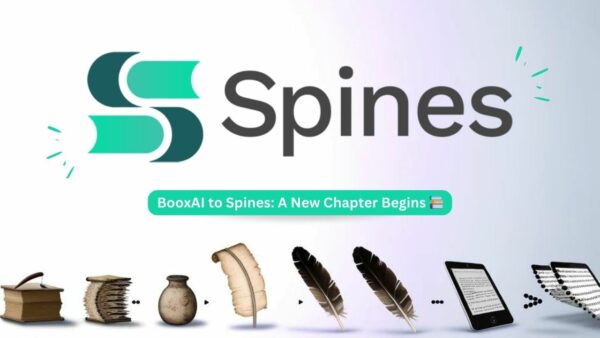
How to Get a Book Published?
Writing a book is an inspiring, yet demanding endeavor – and once the writing is done, there is still much more work to do. To get a book published is a major component of an author’s book-writing experience, and more often than not, perceived as a challenging step. However, finding an appropriate publisher might not be as complicated as you think. Whether you are an aspiring author writing your first book, or an experienced writer having trouble finding a compatible publisher, this article explores the many options available from traditional to self-publishing, and the challenges that can come with each.
A Lot Depends on Your Publishing Partner – BooxAI
There are several different types of publishers: private, government-based, large-scale national, as well as international. Each has different requirements, which can determine how difficult or lengthy the process of publication will be. Some private publishers offer paid publications, a service that requires you to pay a certain fee to get your book published. This can definitely speed up the process – however, not all private publishers accept all topics, which means you need to assess if your topic is aligned with the skills and experiences of the private publisher. Let’s say you’re writing about a political or economic observation. Depending on the country, government-controlled publishing bodies may be an option, but these bodies typically only publish a narrow range of topics, mostly research papers or legislative documents. Large-scale national and international publishers are also an option, but they have a rigorous process, and you should only approach them if 1) you believe your book has mass appeal, 2) you are willing to compromise, and 3) you are ready to face rejection (perhaps more than once). The identification of a suitable publisher type is the first step towards getting your book published, and can minimize the challenges you might face throughout the rest of the publishing process.
Are You and Your Publisher Compatible?
Writer-publisher compatibility is a significant consideration as well. Prospective authors will need to weigh the pros, cons, costs and benefits of a variety of publishing options based on their individual needs. There are times when a given publisher might be a relatively good fit, but an aspect of your book might not meet their standards – leading to somewhat of an obligatory compromise. Certain publishers may reject your book, not due to lack of quality, but because your book’s theme might not be of their audience’s interest. For example, a book on a certain domestic issue of a third-world country might not attract a publishing firm from a developed country because it would not be considered a hot topic there, and could ultimately lead to a fall in their readership. Getting a rejection from your desired publisher can be disheartening, and you may decide to rework certain elements to meet the standards of another publisher – or you may decide to take matters into your own hands and go the self-publishing route.
Are You Seeking Immediate Financial Benefits from Your Book?
Some writers seek upfront financial benefits, and in many cases, only trusted and established publishers offer them. Such companies have a very rigorous publication process, which can take as long as two years – and in some cases, even longer. To begin with, they will ask for the introduction and the first few sample chapters for an internal review. The internal review is only the first step of the lengthy evaluation process; manuscripts are then thoroughly reviewed and subsequent reports are issued, which might require authors to restructure their books, modify its contents, or justify their position on a subject. After this stage, a deed of agreement is signed and the book is sent to the editor, who then edits the book chapter by chapter for any grammar mistakes or shortcomings in efficient use of language. This editing stage demands continuous coordination between the editor and the author, making it a very time-consuming process. Once approved, authors can generate around 10% to 15% royalties on each copy of the book sold, perceived to be a fair trade-off for the publishing and promotional support a traditional publisher can offer. Financial rewards can also be gained through the self-publishing route. Here, authors publish their books without the involvement of an established publisher, though they still require formatting, proofreading, optimization and distribution support. The royalties in this scenario are relatively high, from 30% to 60%. However, under the self-publication method, much of the book’s success depends on the popularity of the author, the quality of the writing, the range of distribution channels used, and in many cases, self-promotion.
How to Reduce the Publication Time?
If you have already written your manuscript, you may not want to wait months (or years) to get your book published. After all, much of the hard work is already done, and it may seem unnecessary to delay your publication even further. In this case, you can research the average publishing times of your desired publisher as a reasonable predictor of the time it may take to publish your book. You can also try to find out how stringent their formatting rules are. Be sure to look out for any extra (potentially hidden) charges that may be imposed for additional images or editing. All of these factors can lead to author-publisher deadlocks, causing significant delays, or worse – your book may not end up getting published at all.
Conclusion
Getting your first book published may seem like a daunting process, but it can be less so if you do the work to find a publisher you are aligned with. No matter what route you take, your book’s progress may sometimes seem to take one step forward and two steps back, but selecting the right publishing partner can minimize unnecessary delays – and it will all be worth it once you finally get to experience the joy of holding the physical manifestation of your work in your hands.








